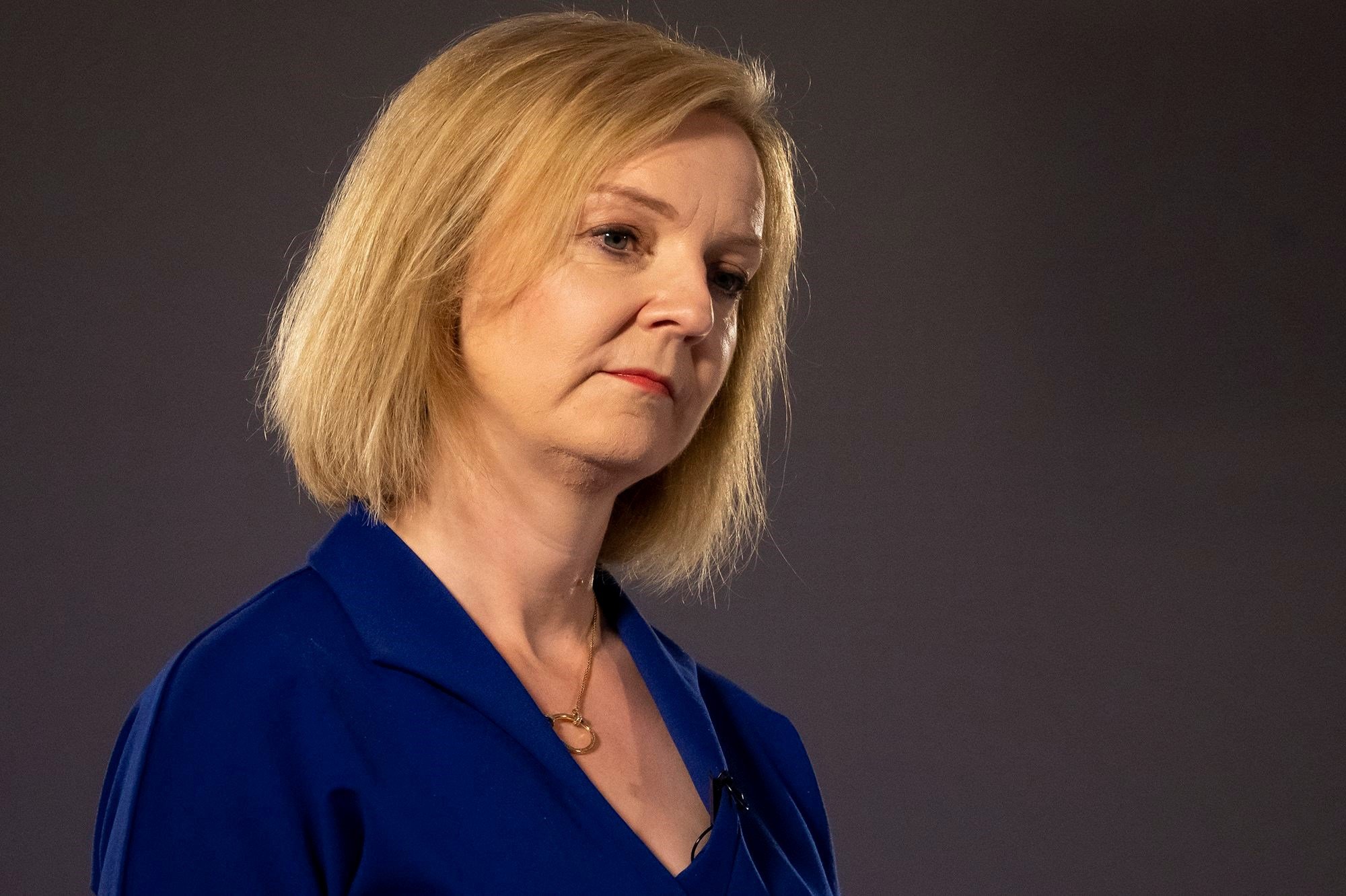Tensions between Biden and Truss over Northern Ireland protocol
Official accounts about the phone call discussion between US President Joe Biden and new UK Prime Minister Liz Truss regarding the Northern Ireland protocol are contradictory.
-

UK Prime Minister Liz Truss (AFP)
Official accounts about the phone call discussion between US President Joe Biden and new UK Prime Minister Liz Truss regarding the Northern Ireland protocol are contradictory.
Truss received a communication from the Biden administration, on Wednesday, September 7, in office cautioning her against "efforts to dismantle the Northern Ireland protocol.”
The message was delivered at the White House when spokesperson Karine Jean-Pierre was asked about the first phone conversation between Biden and Truss. Despite the fact that Jean-Pierre was never asked about the Northern Ireland Protocol, she brought it into discussion nevertheless.
Jean-Pierre stated that “There’s no formal linkage on trade talks between the US and the UK and the Northern Ireland protocol, as we have said, but efforts to undo the Northern Ireland protocol would not create a conducive environment, and that’s basically where we are in the dialogue.”
In other words, the US administration argued that Truss’ threat to the Northern Ireland Protocol, seeking to negate a part of it, is “Not conducive to a trade deal.”
The protocol is the agreement the UK has reached with the EU over how to reconcile Brexit with the open border between the two islands of Ireland created by the 1998 Good Friday Peace Agreement, also known as the Belfast Agreement. There is fierce bipartisan resistance to any action that would jeopardize that accord. It is worth noting that the US took part in establishing the agreement in 1998.
Although Washington applauds Truss' steadfast support for Ukraine, her stance on the protocol is viewed as the main source of friction in the two countries' ties.
When Truss announced in May that the government would move on with legislation that would modify portions of the protocol, a move largely seen as a violation of international law, it caught the White House off guard. At the time, she was the foreign secretary. The Biden campaign received assurances from Boris Johnson that no decision in that regard had been made.
Conversely, official accounts of the Truss-Biden phone call from the UK’s end contradict what Jean-Pierre had said. Downing Street revealed that the two officials had “agreed on the importance of protecting the Belfast (Good Friday) agreement”. While the White House information said that Tuss and Biden had “discussed their shared commitment to protecting the gains of the Belfast/Good Friday agreement and the importance of reaching a negotiated agreement with the European Union on the Northern Ireland protocol.”
On Wednesday, Truss addressed parliament and brought up the Belfast agreement topic stating that “My preference is for a negotiated solution, but it does have to deliver all of the things we set out in the Northern Ireland protocol bill, and what we cannot allow is for this situation to drift.”
US officials appreciated her declared desire for discussions, and the message sent by the White House on Wednesday was designed to discourage her from abandoning them, warning that the relationship's tone may be jeopardized.
EU position on the negation of the Northern Ireland Agreement
The EU has launched four new legal cases against the UK government in response to MPs' support for legislation overriding post-Brexit arrangements for Northern Ireland.
The claims concern previous failures to implement the 2019 deal agreed with Boris Johnson, but the EU has been prompted to act by the passage of a bill through parliament that would rip up current arrangements.
The Northern Ireland protocol bill passed its third reading in the House of Commons in July by a vote of 267 to 195, and will now go to the House of Lords in the autumn.
The four new legal cases, which allege a failure to enforce EU customs, VAT, and excise rules, join three other cases already pending before the European Court of Justice.
Read more: UK PM hopes for 'negotiated solution' with EU to N. Ireland row

 4 Min Read
4 Min Read








